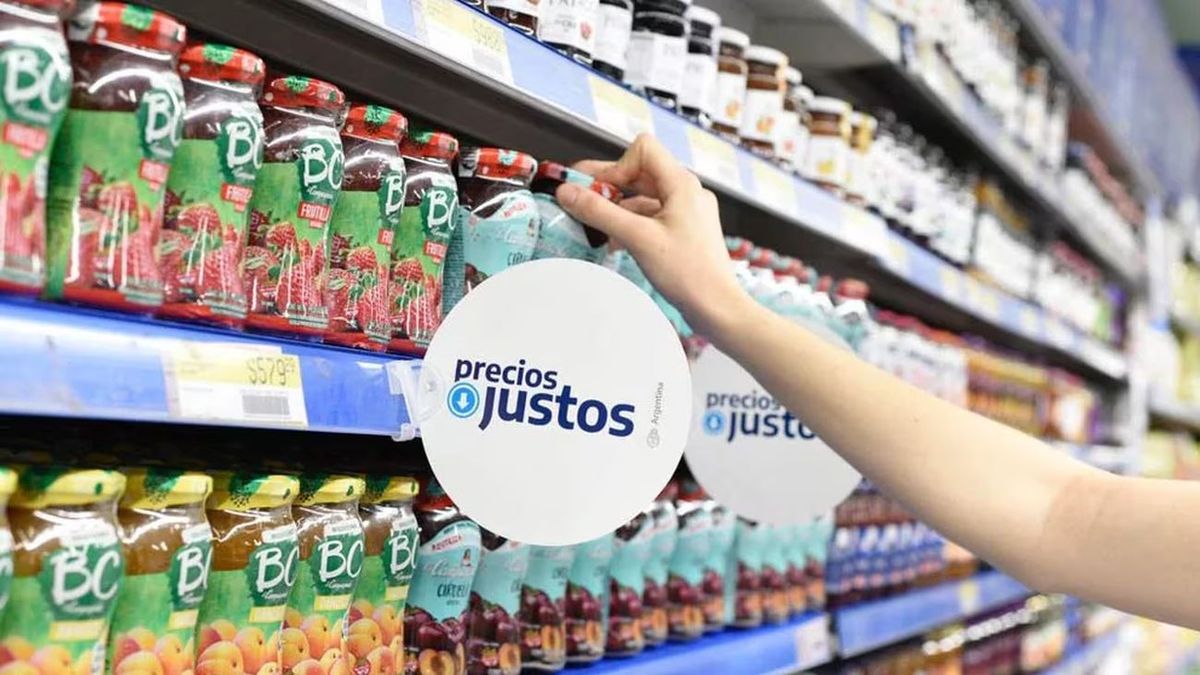On Tuesday, August 15, all price agreements within the Fair Prices framework expired. It was two days after the primary elections, which left Unión por la Patria in third place, and one day after the 22% devaluation of the official. Therefore, the political and economic conditions led the negotiations to extend and become more frictional than usual.
Almost three weeks after the expiration date, the Ministry of Domestic Trade, headed by Matías Tombolini, assures that The meetings with more than 400 companies have already finished and there was an agreement. Just this week, at Roca 651, where the former Ministry of Production is located, there was a parade of more than 300 companies on the second floor, where the Secretariat is. “There was agreement on the new model of the agreement, the duration and the benefits, now the final stage of the signing of the addendum remains”, commented official sources.
By word of mouth, three agreements have been formalized: price freeze gasoline until November, after an increase of 12.5% in August, and an increase cap of 5% with laboratories and companies of massive consume. There are other sectors, such as footwear, clothing, white goods, motorcycles, cell phones, widespread inputs, and small household appliances that “renewed their commitment” to Fair Prices, according to what the Government said, but they did not spread the fine print of what the increase pattern will be. As they explained, it will vary in each case. “There will be different increases and also different tax benefits,” they commented.
New round with food
The mass consumption price lists are complying with the guideline of increases of 5% monthly average, according to assurances from Economy, from supermarkets and from the companies themselves. For this time, there were SMEs that were enabled to raise more. In order to close it, Minister Sergio Massa put the head of Customs, William Michel, to negotiate. With the promise of giving four tax and fiscal benefits, which the Government published in the Official Gazette, they were assured that it is equivalent to if they had increased another 6%.
Although the guideline applies to all supermarket and wholesale items, there are “exceptions” of some products that had higher increases, as was the case of yerba. In addition, the basket of 2,000 essential products that had been frozen or with variations of 3% since last year came to an end. It is called “agreed prices” and means that they should be found at any point of sale at the same price.
One of the discussions that was settled these days was when the second increase of 5%. There were companies that wanted to do it from this Friday, September 1. However, Economy asked them to do so only on August 18and that it stays that way, just as it came.
However, now two discussions are starting. On the one hand, sources from the camera that brings together the food (COPAL), revealed the next order: “In September we will request another revision, to modify the 5% and offset the impact of devaluation costs, meanwhile we will comply with the 5% premise”. Besides, The companies are reluctant to leave the guidelines in writing, in a document that the Secretariat shared with them, entitled “Price commitment agreement to be signed with companies that supply consumer goods.”
Today it is the supermarkets that end up “monitoring” the agreements, since they claim not to accept listings greater than 5%. For this reason, the discussions take place between the supermarket and the suppliers, who asked to lower the payment terms from 30 to 7 days and make “quoted” deliveries, commented from a supermarket chain.
Next week, AFIP will publish a resolution to implement a new system called GC1 to monitor price increases, and in cases where they exceed what was agreed, it will withdraw the tax benefits. “Before the controls were within the framework of the consumer defense law, now one more control is added,” official sources said.
Source: Ambito




